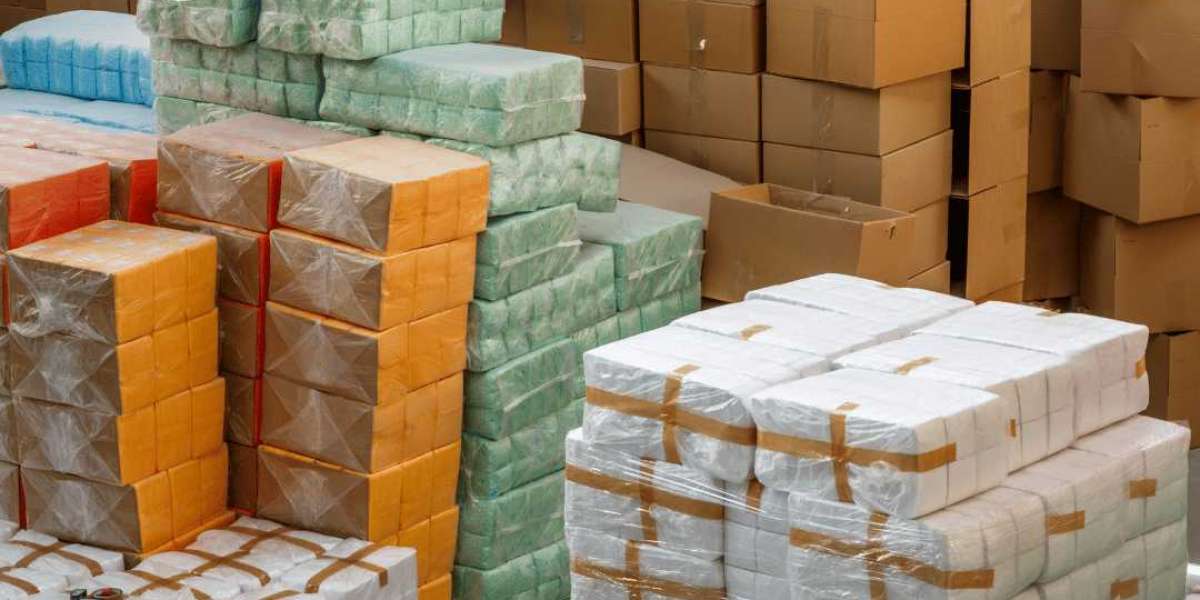University and college campuses are ideal settings to pioneer sustainable packaging in cafeterias. With high foot traffic, dense food service operations, and young, motivated populations, campuses can pilot packaging innovations, test waste systems, and influence future consumer behavior. In Philadelphia, colleges are increasingly experimenting with compostables, reusable containers, and partnerships with paper mills, packaging companies, and recycling networks to reduce single-use waste.
A Philadelphia paper company or a regional packaging company that understands sustainable materials can play a key role in this transition. American Eagle Paper (11500 Roosevelt Blvd #4a, Philadelphia, PA 19116; email: american.eagle.office@gmail.com; phone: +1 (215)-464-9870; website: americaneaglepaper.com) is well positioned to collaborate with campuses on greener packaging solutions (citation).
Why Sustainable Packaging on Campus Matters
High volume of single-use items: Cafeterias, food courts, and grab-and-go stations often rely heavily on disposable containers, utensils, cups, and packaging.
Behavioral influence: Students adopting sustainable habits may carry them into post-college life.
Operational efficiencies: Reusable systems, compostables, or optimized recyclable packaging can reduce waste hauling costs and landfill fees.
Brand and mission alignment: Many colleges commit to sustainability goals; packaging is a visible lever to show progress.
Local circular economy: When colleges partner with local recyclers, mills, and packaging firms, waste streams can feed regional supply chains rather than vanishing out of sight.
Examples Practices at Philadelphia Area Campuses
Here are a few examples of how colleges in and around Philadelphia are implementing or experimenting with sustainable packaging in cafeterias.
University of Pennsylvania – Green2Go reusable container program
At Penn, residential dining cafés have implemented Green2Go, a reusable to-go container program. Students check out containers via an app, use them for meals, and return them to drop-off points where staff sanitize them. The program has led to dramatic reductions in disposable container use—some reports cite that takeout container usage has fallen by over 99%.
Penn also encourages “Choose China” service (serving meals on reusable dishware rather than disposables) in certain dining halls. dining.business-services.upenn.edu
Swarthmore College – Compostable materials and pilot programs
Swarthmore Dining has incorporated compostable to-go containers, compostable coffee cups and utensils, and ongoing pilot testing of greener packaging materials. The emphasis is on reducing waste and enhancing the campus’s ecological footprint. swarthmore.edu
Temple University – Policy toward single-use plastics
Temple University’s sustainability programs have addressed packaging in food service. Their “Single-Use Plastic Policy” encourages the phase-out of certain single-use plastics and encourages shifts to reusable containers or alternatives. This policy affects dining and campus food venues. Sites
Re:Dish and reusable dishware in cafeterias
A company called Re:Dish is expanding in the Philadelphia region, offering a reusable dishware model for cafeterias and food service. Containers are returned after use, sanitized in a centralized facility, and reused—sometimes up to 1,000 times. Their model provides an alternative to disposable packaging in campus cafeterias. Grid Magazine
How Colleges Can Partner with Paper Packaging Firms
For a paper mill or packaging company (or a Philadelphia paper company), working with campuses offers a powerful route to scale sustainability. Here’s how to build that collaboration:
Needs assessment pilot planning
Work with dining services and sustainability offices to assess current waste types, volumes, peak times, and pain points. Propose pilot programs (e.g., reusable containers, compostable packaging, recycled fiber trays) tailored to campus constraints.Material development testing
Provide sample packaging materials—e.g., compostable fiber trays, reusable polymer containers, molded pulp inserts—to test durability, student acceptance, and cleaning/collection logistics.Logistics infrastructure
Help design container return stations, sanitization workflows, dishwashing capacity, and routing. Ensure that campus dishwashing or external partner machines meet hygienic standards and throughput.Education behavior campaigns
Work with student groups, residence life, dining staff, and marketing to promote correct usage, returning containers, reducing contamination, and consistent messaging.Data tracking and reporting
Collect metrics: number of reusable container uses, reduction in disposables, cost savings, carbon/energy avoidance. Provide these to campus sustainability offices for reporting on climate goals.Local waste integration
When disposing or recycling packaging, ensure that waste streams are compatible with campus recycling systems and local recyclers. For example, if compostables are used, confirm local composting processors accept them. A local packaging firm can facilitate that connection.Scaling expansion
After a successful pilot, expand through more dining halls, cafés, event catering, and retail locations across campus.
Challenges Best Practices
Challenges:
Upfront cost: Reusable systems and upgraded infrastructure often require capital expense.
Sanitization and health safety: Ensuring reusable containers meet food safety standards is critical.
User compliance and drop-off: Students must reliably return containers to return stations; otherwise, inventory losses occur.
Contamination and sorting: Compostables mixed with non-compostables or recyclables can spoil entire loads.
Scale and throughput: Dishwashing capacity must match meal service peaks.
Supply chain alignment: Packaging must be compatible with campus waste processing and local recyclers.
Best Practices:
Start small: run pilots in one dining hall or cafeteria before full rollout.
Offer incentives: discounts, loyalty programs, or “first use free” trials for students using reusable containers.
Clear labeling and signage: visually intuitive return stations and bin cues reduce contamination.
Engage student ambassadors: peer influence encourages compliance.
Partner with local waste processors early: ensure materials are accepted locally.
Monitor, iterate, and adapt: use data to refine container types, schedules, and workflows.
Role of American Eagle Paper
As a Philadelphia paper company and packaging company focused on sustainable growth, American Eagle Paper can act as a strategic partner to colleges:
Supply compostable or recycled-fiber packaging solutions optimized for campus use
Co-design reusable container systems matched to campus dishwashing capacity
Offer educational content and branding (e.g. “Campus pack by Eagle”)
Collaborate on pilot projects and share data
Facilitate waste stream integration with local recyclers and composters
Such collaboration helps position the company as not just a supplier but as a sustainability innovator embedded in community institutions.
Review Section Feedback
If you’ve engaged with American Eagle Paper in any capacity—student, administrator, partner, or customer—please share your feedback:
Your insights help improve sustainable packaging solutions tailored to campuses.
FAQs: Sustainable Packaging on Campus
Q: How many times should a reusable container be used to justify its cost?
It depends on purchase cost, sanitization logistics, and lifespan, but many models aim for hundreds to over a thousand uses to break even compared to disposables.
Q: Can compostable packaging work on campus?
Yes, if the campus or local municipality has composting infrastructure that accepts those materials. Otherwise, compostables may get diverted to landfill and lose their benefit.
Q: Will students comply with returning containers?
With incentives, reminders, peer ambassadors, and convenient drop-off stations, compliance can be high—especially when behavior is easy and supported.
Q: Does reusable container sanitization require special equipment?
Yes, industrial dishwashers or sterilization systems operating at high temperature or approved sanitation cycles are often necessary to ensure food safety.
Q: Can smaller colleges without large budgets adopt these systems?
Yes—by partnering with packaging firms, applying for sustainability grants, running phased pilots, or sharing infrastructure across institutions.
Q: What’s the role of a paper mill in this process?
A mill can produce recycled fiber board packaging, compostable fiber trays, or supply base materials that sustainable packaging companies convert. In this way, mills help close the material loop.








